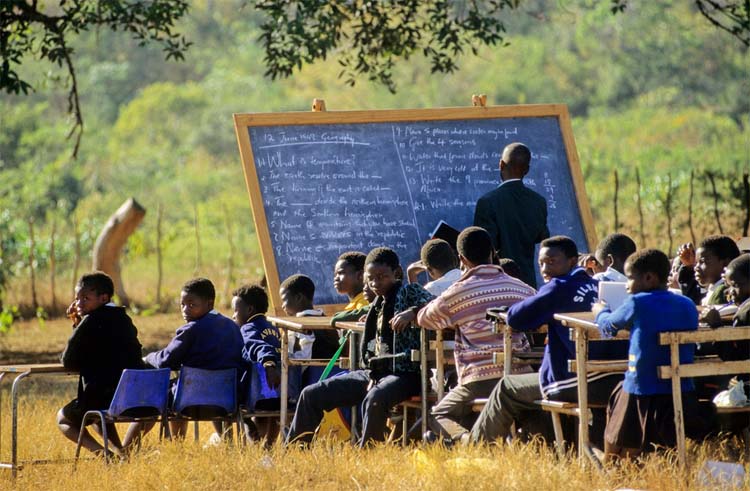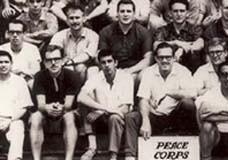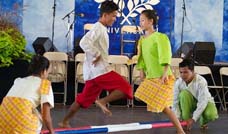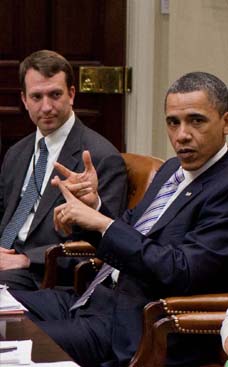
No one would ever walk into a well-off Western community and start snapping photos of people's homes. No one would go to a playground there and take pictures of children who belong to strangers. Those photos would definitely never be sold. The photographer in any of these cases could expect a harsh reprimand at the very least. And yet, when the scene moves to Africa, the rules seem to change. Of course it's okay to take pictures of poor people, their homes and their children without their permission! Except that it's not. Some people don't want their personal poverty on display in some foreign person's photo album. Some people want to protect their privacy. On the other hand, some people love to ham it up for the tourists. So the next time you're on vacation remember to relax your trigger finger, take a deep breath, and ask!
Peace Corps Volunteer "A Passage to Africa" writes: Image Rights
Image Rights
Wednesday, August 17, 2011
Sorting through all the photos I've accumulated over the last couple years in Africa, I see plenty of dramatic nature shots from various vacations but virtually no pictures of any of the three villages I've called home. Unfortunately, that's not going to change. Unless you hop a flight out here and see it for yourself, the scenic beauty of Loopeng and the quirks of its residents are eventually going to reside only in my memories. It's not that I don't enjoy taking photos, or feel uncomfortable hauling such an expensive piece of equipment around, but rather I've grown extremely conscious of the image rights of individuals.
As the sole white occupant of Loopeng, and quite often the only white girl wherever I go, I've gotten used to the camera phones whirring wherever I go. It's not often that taxi passengers are seated next to a lekgowa. They want proof to show their friends. They want a photo. Sometimes people ask. Often they don't. While I am accustomed to the attention, I am not exactly comfortable with it. I may be the subject in these pictures, but I have no control of the image itself. It may be duplicated, it may be altered, it may be posted online. It may spend decades covered by electronic dust until I attempt to embark on a political career, at which point it will be sure to rear its potentially ugly head. The point is, having your photo taken by strangers is unpleasant, particularly in this digital age where there is no way to tell where the photo may end up and how it might be used.
I am hardly the only person who feels this way. During a trip to Zambia, I spent an afternoon walking out to a local market. The path was dotted with quaint colonial-era homes surrounded by lush jungle vegetation. It was gorgeous and the urge to take a photo was strong, but I resisted. The homes, many of which had seen better days, were inhabited. There was laundry in the yards, stacks of wash buckets and, of course, people. The yards and alleys were crammed with locals. While I kept my hands in my pockets, my companion was not so cautious. She whipped out her camera and started snapping. Instantly, there was shouting from the house she had just photographed. Neither of us spoke the language, but the message was clear, particularly when our guide asked her to put her camera away.
Not all subjects are as vocal about their objections, particularly children. Their ignorance makes them easily exploitable and they often are. Almost every visitor to an African village goes home with a dozen photos of adorable children. The kids here certainly are cute and they frequently enjoy having their picture taken. However, I've seen this go way overboard. A close-up photograph of several local children was turned into a postcard, duplicated and is now being sold. Granted, it's being sold as a fundraiser, but that misses my larger point which is that when it comes to image rights, Africans don't have them.
No one would ever walk into a well-off Western community and start snapping photos of people's homes. No one would go to a playground there and take pictures of children who belong to strangers. Those photos would definitely never be sold. The photographer in any of these cases could expect a harsh reprimand at the very least.
And yet, when the scene moves to Africa, the rules seem to change. Of course it's okay to take pictures of poor people, their homes and their children without their permission!
Except that it's not. Some people don't want their personal poverty on display in some foreign person's photo album. Some people want to protect their privacy. On the other hand, some people love to ham it up for the tourists. So the next time you're on vacation remember to relax your trigger finger, take a deep breath, and ask!
















